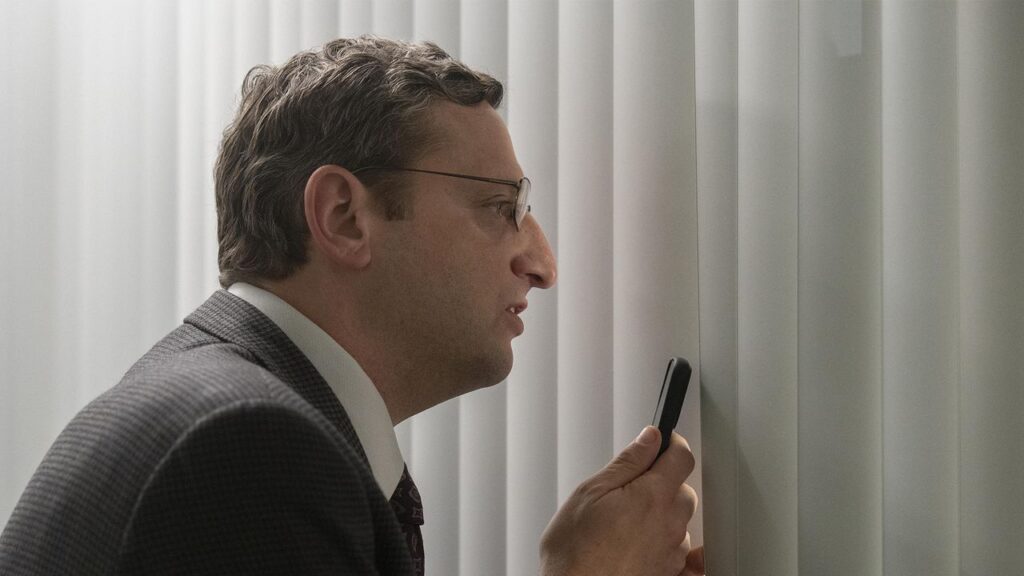But unlike many writers and comics who have made it big from more humble beginnings, Robinson doesn’t seem to be interested in celebrating the inspirational dignity of the people he grew up around, or taking a more politically-charged, class-inflected view of their lives. Robinson is looking back across the miles of pre-planned suburbia, the generic raincoats, the dogmatic politeness of his upbringing, and wondering, How on earth is it that you people stay sane?
By showing us character after character who doesn’t (almost always played by himself), Robinson is interrogating the mild insanity of living a very ordinary life, and the constricting anti-individuality that this normality can impose on anyone (like him) who doesn’t naturally fit within it. Knowingly or (more likely) not, he’s following in the footsteps of literary laureates of the lower-middle classes (Jonathan Franzen, Philip Larkin, John Betjeman, et al) to show us how minor annoyances can, against the painfully bland backdrop of domestic and professional banality, start to feel anything but minor. How the little grievances that should only appear as speed bumps along the road of someone’s life can, if that road is flat enough, start to look a lot more like mountains.
The Chair Company pushes this idea to further extremes than his previous work. It retains the absurd humor of Robinson’s previous work, but it pairs that humor surprisingly effectively with an HBO drama sheen. The mystery narrative that unwinds from what is initially a strictly chair-based gripe is a genuinely compelling and at times disturbing trip down a rabbit hole that threatens to untether Ron completely from the stability—house, job, family—he’s built his life around.
What Robinson seems to be exploring here is; why on earth would a person do that? Why would someone not just be able to accept and move past the tiny obstacles that populate their humdrum life? Why would a faulty office chair become such a big deal to someone? The answer is that to Ron, the collapse of an office chair seems so big because the rest of his life seems so small.
So is it about reframing the things he has in a way that makes him more grateful for them? Or does the mundanity of suburbia mean people like Ron will always be driven toward these unhealthy kinds of obsessions? The Chair Company gives us no neat answers, of course. But Robinson is building an almighty career out of asking the question.
This story originally appeared in British GQ.


